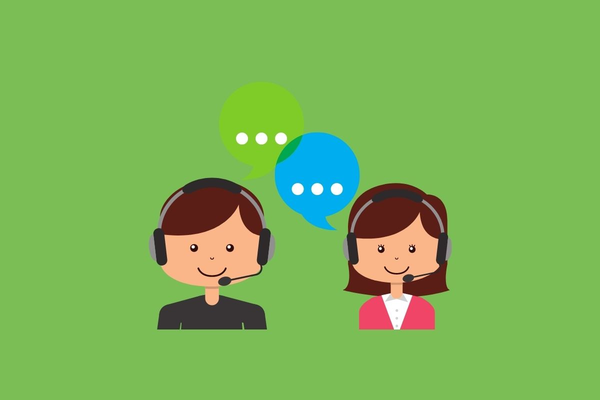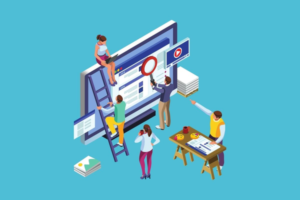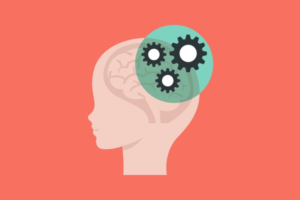Great customer service is essential as it is the direct connection between your customers and your business. Excellent customer service translates into customer loyalty and retention. A great experience with your customer service teams can also contribute to word of mouth referrals and positively impact your bottom line.
Great customer service begins with well-trained employees who have a personality fit to the job role’s requirements. DISC provides organisations with a tool to identify talent that will exceed in a customer service environment. To determine if respondents have the necessary behavioural styles, companies use customer service personality tests during the employment process.
What Are The Most Common Customer Service Personality Tests?
Pre-employment customer service assessments help recruitment managers make informed decisions about their customer service applicants. The most common pre-employment customer service personality tests are DISC assessments.
Extended DISC® customer service personality tests assess whether an individual has the necessary personality traits required for a customer service role in your organisation. People who have a DISC profile that matches the necessary competencies required of a customer service role are more likely to succeed. They will have a natural inclination to the behaviours needed and can perform these with little stress or pressure. They are likely to stay in the role longer and perform more successfully than others who may not have a natural inclination to the required competencies.
Managers can use DISC personality profiles to match their employees to the customer service roles where the employees are more likely to thrive. A DISC assessment provides essential insights into applicants’ communication preferences and how they are likely to respond in a customer service environment, including listening and responding to customer queries.
How To Pass A Personality Test For Customer Service
Employers use customer service personality tests to identify top candidates and filter their list of applicants during their hiring process. Employers typically request applicants complete a DISC personality test in the later stages of the recruitment process to evaluate which applicants have the best fit for the customer service role. Customer service personality tests determine if there are some critical behaviours that the candidates lack or need to improve. Ultimately, companies are trying to predict whether your behavioural or personality style is a good fit for the position.
So, how do you pass a personality test for customer service? One of the biggest misconceptions about customer service personality profiles is that you can pass or fail. A DISC customer service personality test is not like a traditional achievement test. The customer service questionnaire does not have correct or incorrect answers. One of the most significant benefits of a customer service personality assessment is that it is non-bias. A personality test does not differentiate between the DISC personality types as better or worse in a customer service role. The DISC types simply provide different types of customer service. The best customer service personality tests aim to provide employers with objective data to make more educated hiring decisions and better understand who they are recruiting.
If your future employer requests you to undergo a personality test for a customer service role, your best approach is to relax and honestly answer the questions. Try not to pick answers you think the employer may be looking for. An attempt to influence your responses won’t get you anywhere.
How to pass a personality test for customer service:
- Complete the customer service questionnaire with your current role in mind.
- Complete the questionnaire without interruptions. Do not do anything else or talk with anyone during the process.
- Answer the question as you see yourself – not as you wish others to see you.
- Select the answer that first feels right. There are no “right/wrong/good/bad” answers.
- Always answer both components (‘What describes you the best?’ and ‘What describes you the least?’) before moving to the next question.
- Remember, the questions ask what is most and least like you, not exactly like’ and ‘exactly not like’.
- Complete the questionnaire quickly, but not hastily. Don’t think about the questions too much.
- Do not attempt to influence the results. You will only confuse yourself and invalidate the results.
What DISC personality type is best for customer service?
There is no perfect or ideal DISC personality type when it comes to customer service. Experience and training also play an important role. However, some styles are more naturally suited to different customer service settings. Customer service representatives need to interact with customers positively, calmly, and personably no matter the situation. Typically the most successful customer service representatives fall under the I and S DISC profiles. These profiles are usually empathetic, supportive and reliable.
It’s essential to match your employee’s types with the requirements of your customer service role.
D DISC personality types excel in customer service situations when they can lead the customer, and the contact is short. D types can resolve issues quickly and create new and innovative solutions to problems. They handle pressure well and focus on the issues without becoming emotional. However, D personality types can be impatient listeners and not uncover their customers’ true needs or issues.
I DISC personality types excel in customer service environments that require building a relationship and influencing the customer. I types enjoy interacting with new people. They are easy to approach and make their customers feel comfortable. Their positive attitude puts their customers in a good mood quickly. However, they may spend too much time talking and not enough time listening to their customers. They also tend to procrastinate with difficult and unpleasant issues.
S DISC personality types exceed in repeat service customer situations. They are patient listeners and can find out the needs and issues of their customers. They build and maintain trust and are accepting and warm with their customers. However, S personality types can be slow to react and make decisions in new situations and may focus on the negatives too much, making them appear pessimistic.
C DISC personality types are excellent in technical customer service roles where knowledge, details and facts are needed to provide a great consumer experience. They provide consistent service and aim for perfection. Their emphasis on facts and details may mean they overlook the human aspect of customer service and not spend enough time relating to customers.




